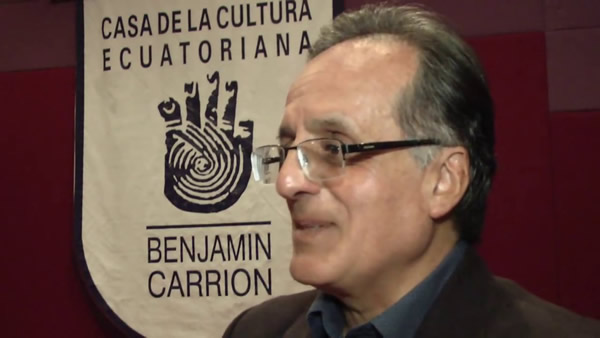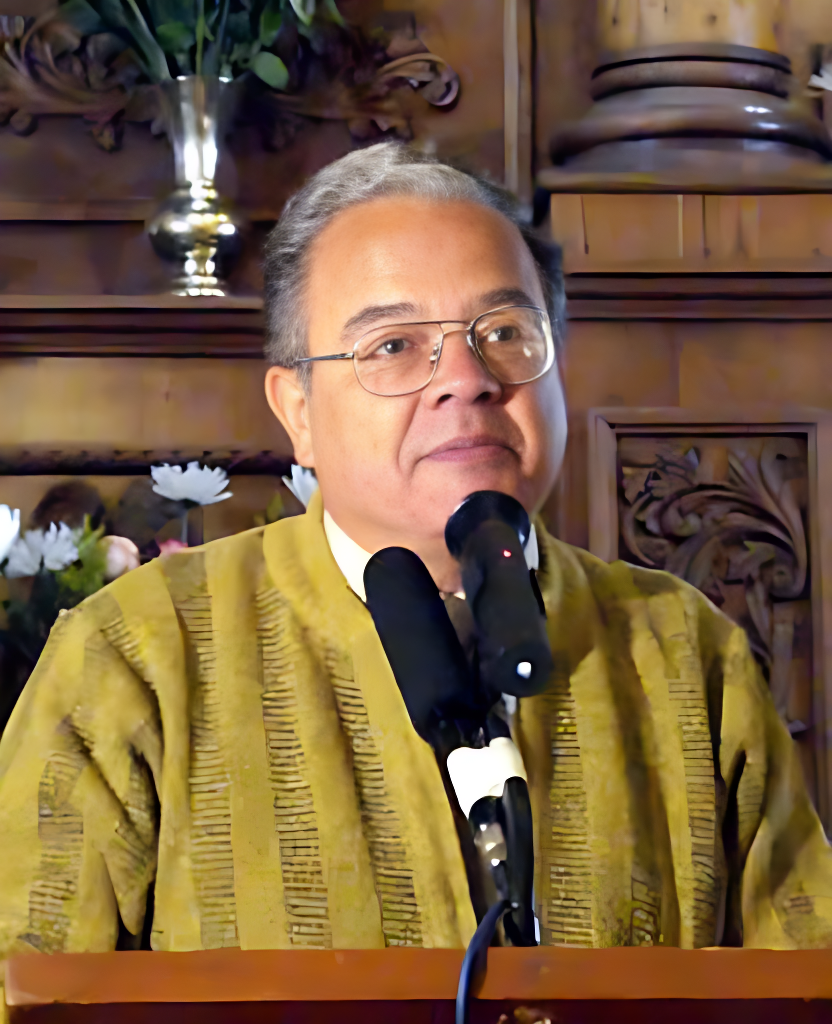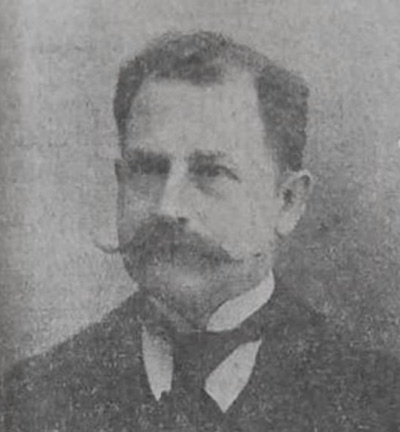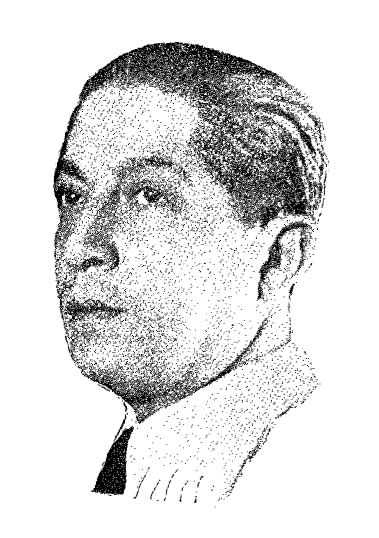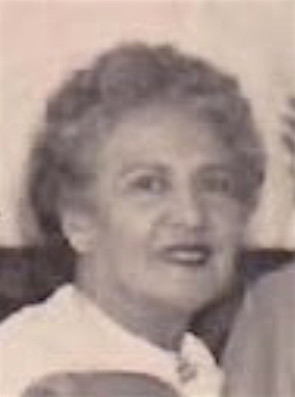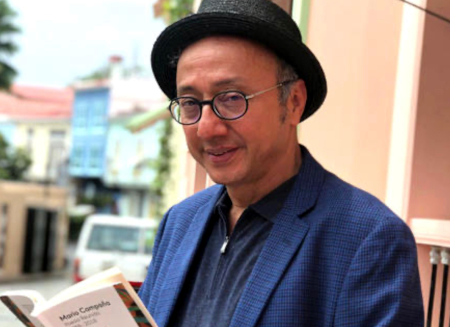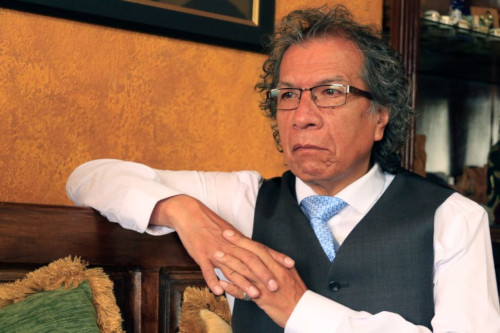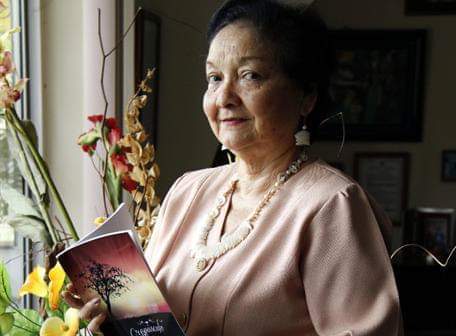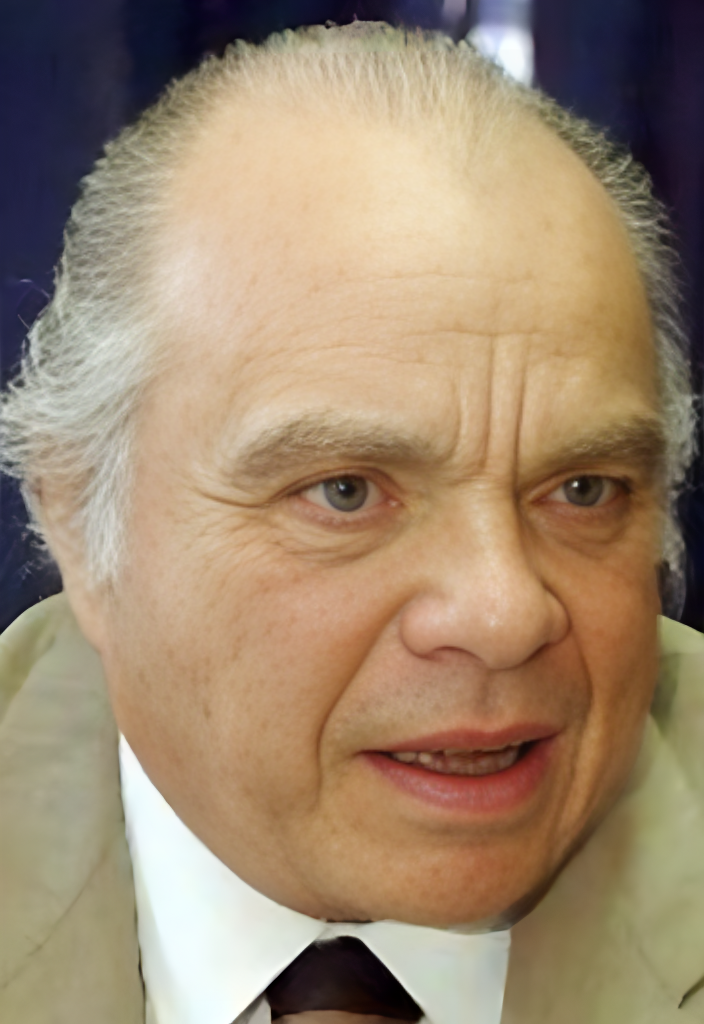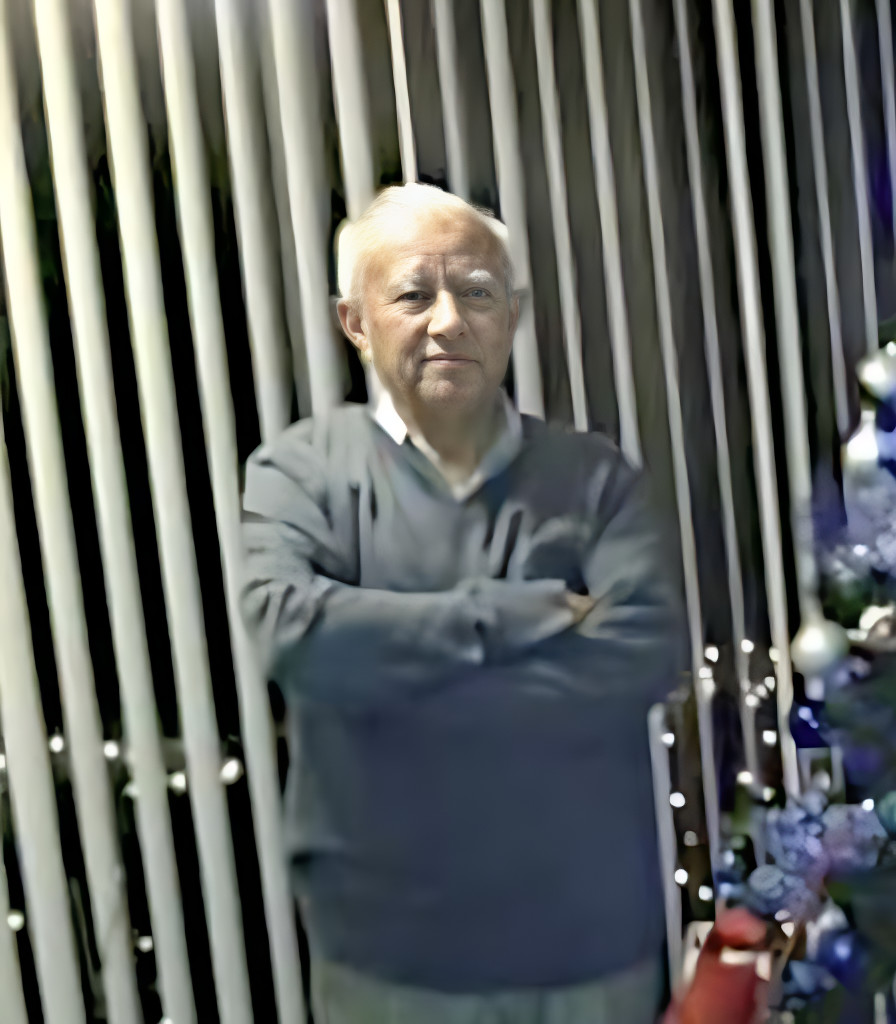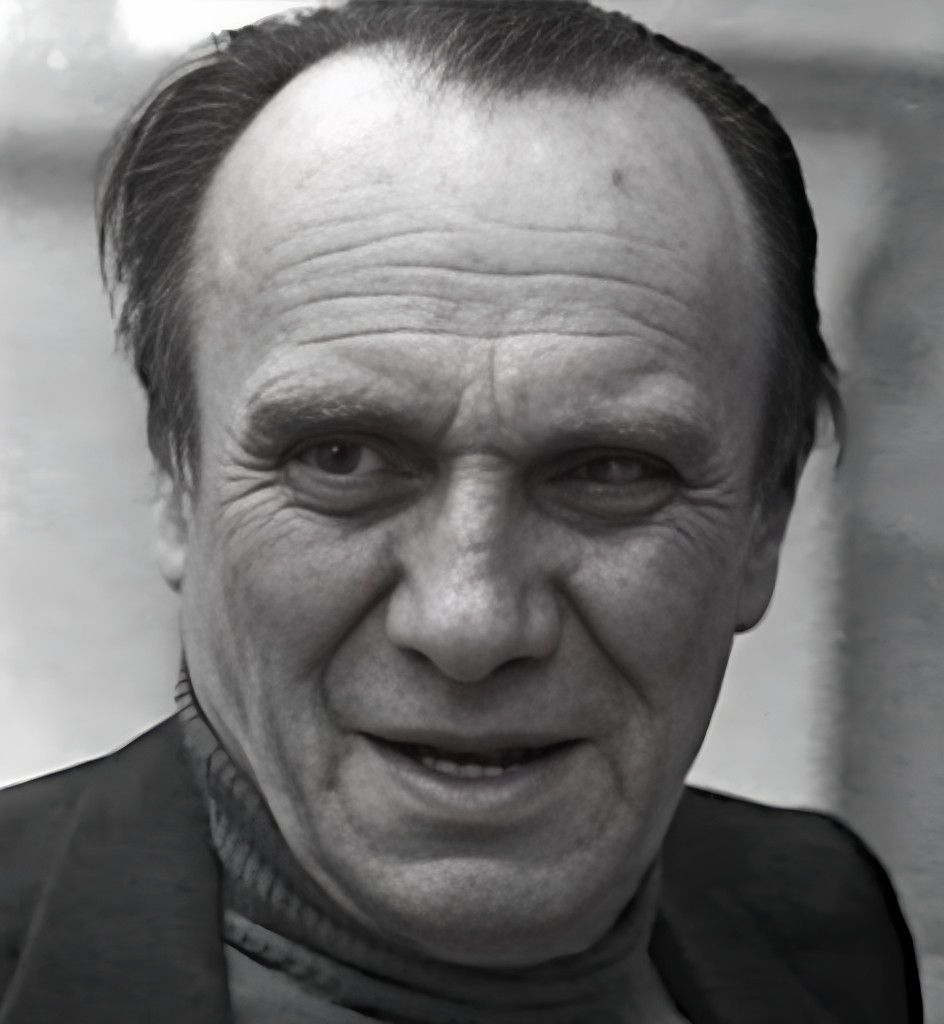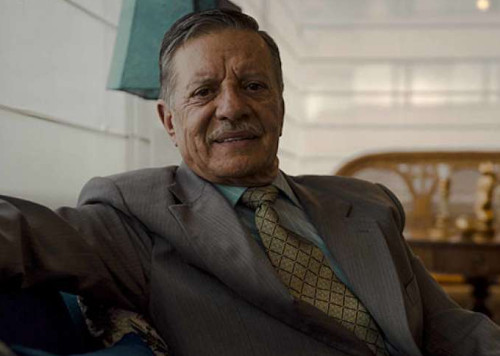Patricio Rivadeneira Arandi (Quito, 1953) is an Ecuadorian poet and holistic doctor. He has published several short essays about health with titles such as “Supresión y metástasis mórbida,” “Contrarios complementarios y dinamismo miasmático,” and “Nuevas perspectivas en la alimentación.” In 2016 the House of Ecuadorian Culture published his first poetry book, “Momento,” a selection of 70 of his poems.
Continue reading “Patricio Rivadeneira Arandi”Category: 20th Century Writers
Fernando Jurado Noboa
Fernando Jurado Noboa (Quito, 1944) is an Ecuadorian psychiatrist, historian, biographer, essayist and genealogist. Between 1967 and 1975, he studied medicine at the Central University of Ecuador, and from 1976-1979 he studied psychiatry in Spain. In 1973 he became the youngest member of the Ecuadorian Academy of History. He has been one of the most prolific historic researchers in Ecuador and he has published a large number of works. He has authored more than 50 books and 500 articles in historical and medical journals. He founded Ceniga in Quito (1980) and Sociedad Amigos de la Genealogía (1983).
Continue reading “Fernando Jurado Noboa”Carlos H. Endara
Carlos Honorato Endara Garzon, pseudonym Delittante (Quito, December 19, 1896 – Quito, August 2, 1938) was an Ecuadorian poet, essayist, journalist and literary critic. He founded and directed the magazines Ecos Juveniles, Atenea, Bolas y Boladas, and Vida intelectual. He was also a contributor of the magazines Letras and Renacimientos. He worked as a journalist for El Dia before founding Figaro in 1925, an elegantly presented magazine illustrated with Lattore’s satirical caricatures. In 1924, he published “La alcoba de los éxtasis,” a collection of chronicles and short stories.
Continue reading “Carlos H. Endara”Miguel Moreno Serrano
Miguel Moreno Serrano (Cuenca, July 27, 1886 – Cuenca, January 19, 1943) was an Ecuadorian poet and literary critic. He had a PhD in biology as well as a medical degree in surgery, but he never practiced. He worked as the director of the Bank of Azuay, secretary of the University of Cuenca, and treasurer of Public Assistance of Azuay. He was the son of the poet Miguel Moreno Ordóñez.
Continue reading “Miguel Moreno Serrano”J.O. Llaguno
Jerónimo Orión Llaguno Márquez (also known as J. Orión Llaguno and J. O. Llaguno) (Puebloviejo, September 30, 1869 – Guayaquil, May 16, 1965) was an Ecuadorian poet, journalist, and civic leader. He was a founding member of the Circle of Journalists of Guayas in 1936 and also wrote the hymn for El Universo, one of Ecuador’s oldest newspapers. Llaguno’s poetry, rooted in Romanticism, is best known through works such as Frondas poéticas (1909) and Resonancias de mis selvas (1953). Over his career, he contributed significantly to Ecuadorian literature and journalism, receiving numerous accolades, including being named Redactor Vitalicio (Lifetime Editor) of El Universo.
Continue reading “J.O. Llaguno”Carlos F. Granado Guarnizo
Carlos Francisco Granado Guarnizo (Guayaquil, 1890 – 1946) was an Ecuadorian poet, writer, playwright, literary critic and journalist. In 1913 he began publishing literary articles in the magazine El Telégrafo Literario under the pseudonym Lohengrim, and in 1914 in the newspaper El Cascabel under the pseudonym Antonio de Tarfes. In 1915 he began publishing poems in the magazine El Guante. That same year he wrote his poems, “Rotativa” and “Jesús,” which he donated to the Children’s Protection Society, which published them on their own account with a prologue by Nicolás Augusto González. In 1916 he founded the magazine Helios which he directed until its last issue in 1918. In 1917 he published his play Justicia, which Ricardo Descalzi described as one of Ecuador’s first works of social theater. A second edition of the play was published in 1939, the proceeds of which he donated to the Freemasons of Guayaquil. He had been a Freemason since 1919. His brother Miguel Ángel Granado Guarnizo was also a poet.
Continue reading “Carlos F. Granado Guarnizo”Zaida Letty Castillo
Zaida Letty Castillo de Saavedra (Guayaquil, February 5, 1890 – Guayaquil, July 30, 1977) was an Ecuadorian poet. She hailed from a family of journalists and writers. She wrote under the pseudonym Djenana, which she adopted from a character in “Les Désenchantées,” a French novel by Pierre Loti. She published her works in “El Telegrafo Literario,” a literary supplement of the newspaper El Telégrafo, owned by her family. She also directed the supplement “La mujer y el Arte” of the Peruvian newspaper “El Comercio,” as well as other publications in Ecuador and Venezuela. She was a founder of the Guayas branch of the House of Ecuadorian Culture and her poetry appears in several anthologies of Latin American poetry.
Continue reading “Zaida Letty Castillo”Mario Campaña
Mario Campaña Avilés (Guayaquil, 1959) is an Ecuadorian poet, biographer, essayist and anthologist of poetry. He founded and directed the Latin American cultural magazine Guaraguao in Barcelona for 22 years, until 2018. In 2018 he published, “Poesía Reunida 1988-2018,” a compilation of all his published poems up to that time. He has also authored literary biographies on Francisco de Quevedo and Baudelaire. He has lived in Barcelona, Spain since 1992.
Continue reading “Mario Campaña”Fabián Guerrero Obando
Fabián Guerrero Obando (Quito, 1959) is an Ecuadorian lawyer, poet, writer and university professor. He received a doctorate in jurisprudence from the Central University of Ecuador. He was president of the Ecuadorian Society of Writers (SEDE). He teaches Creative Writing and Textual Linguistics at the Faculty of Social Communication of the Central University of Ecuador. Some of his work has been translated into English, German, French, Greek and Italian.
Continue reading “Fabián Guerrero Obando”Piedad Romo-Leroux Girón
Piedad Romo-Leroux Girón (Guayaquil) is an Ecuadorian psychiatrist, university professor, and well-known children’s author with 56 volumes to her credit, including poetry, fiction, essays, and plays. From 1970 to 2008, she was the Chief Doctor of the Children’s Ward at the Lorenzo Ponce Psychiatric Hospital; from 2008 to 2010, she supervised the hospital’s Academic Council; and from 2010 to 2011, she directed the Santa Rosa Women’s Ward.
Continue reading “Piedad Romo-Leroux Girón”Jaime Damerval
Jaime Francisco Damerval Martinez (Guayaquil, November 19, 1940) is a lawyer, poet, essayist, journalist, columnist, university professor, political scientist, politician, former minister of the interior (2004) and former presidential candidate of Ecuador (2006). His poetry books include “Racimos” (1975) and “Mazorca” (1981). He also authored two book-length political essays: “Centralismo y regionalismo en el Ecuador” (1979) and “Monopolio político en el Ecuador” (2000), as well as collections of journalistic articles. He was an opinion columnist for the daily newspaper El Universo for over 20 years. In 2014 he became a member of the Guayaquil chapter of the Ecuadorian Academy of History.
Continue reading “Jaime Damerval”Nelson Jaramillo Mora
Nelson Jaramillo Mora (Zaruma, El Oro, Ecuador, circa 1930-2017) was an Ecuadorian writer and archaeologist. He worked as a professor of history and civics for over 35 years. Jaramillo Mora wrote short stories, essays, biographies, poems and books on history and archeology.
Continue reading “Nelson Jaramillo Mora”Antonio Lloret Bastidas
Antonio Lloret Bastidas (Cuenca, February 5, 1920 – November 5, 2000) was an Ecuadorian writer, journalist, critic and educator. He wrote several books of various genres: poetry, history, biography, fiction and nonfiction. From 1947 to 1960, he received several poetry awards, and in 1975, his novel “Los signos de la Llama,” which received praise from Jorge Luis Borges, won the House of Ecuadorian Culture’s novel competition. That same year, the Municipality of Cuenca awarded him the “Fray Vicente Solano” Cultural Award. In 1993, he joined the Ecuadorian Academy of Language. He was a founding member of the Azuay Union of Journalists and the Director of the Municipal Library. In 1993, Cuenca’s Municipal Council named him “Lifetime Chronicler of Cuenca.”
Continue reading “Antonio Lloret Bastidas”César Hermida Bustos
César Hermida Bustos (Cuenca, 1943) is an Ecuadorian doctor, university professor and novelist. He is the son of the writer Dr. César Hermida Piedra. He was a professor at the Central University of Quito from 1972 to 1993. Later he was an honorary professor there. In 2019 his novel Amoríos won the “La Linares” award. He returned to live in Cuenca in 2018.
Continue reading “César Hermida Bustos”César Hermida Piedra
Dr. César Hermida Piedra (Cuenca, 1912-2005) was a doctor, university professor, writer, poet and a historian of Ecuadorian medicine. He served as the Undersecretary-General of Health at the Ministry of Public Health in Quito. As a professor in the Medical Sciences Department of the University of Cuenca, Dr. Piedra taught “history of medicine.” His son, César Hermida Bustos, is an award-winning novelist.
Continue reading “César Hermida Piedra”